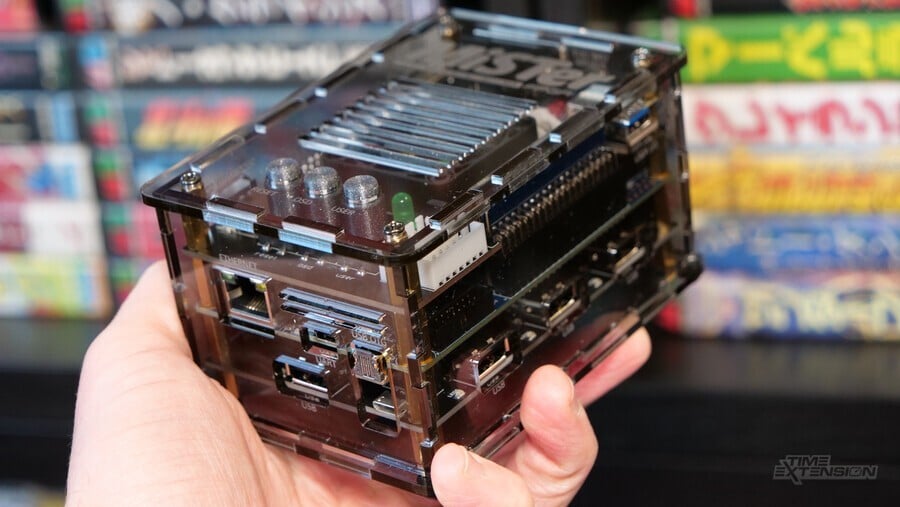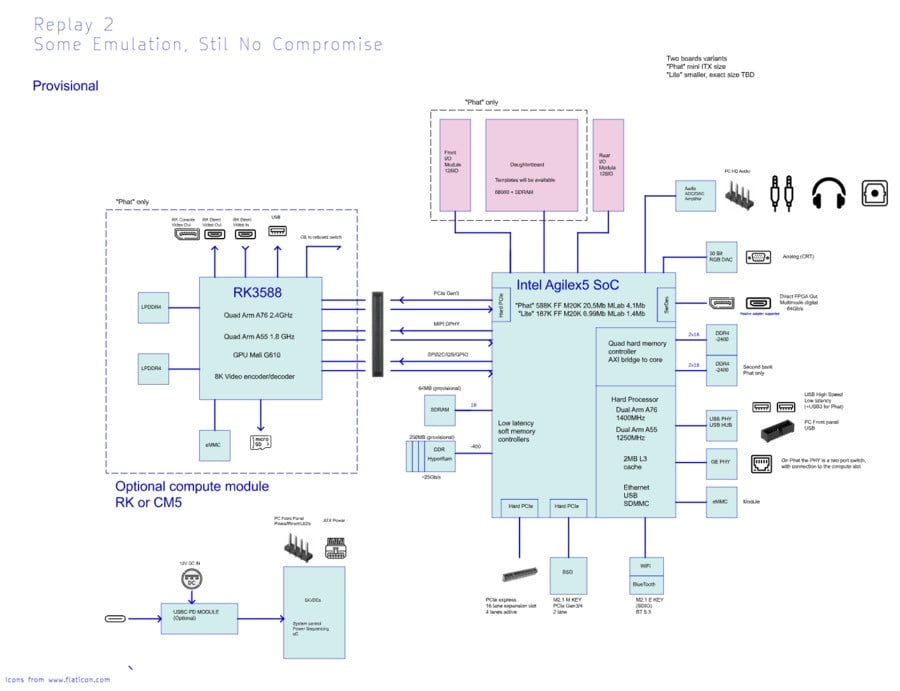
The world of FPGA retro gaming has been dominated by MiSTer FPGA over the past few years, but in more recent times, news of the more powerful MARS FPGA platform has caught people's attention.
It looks like MARS might have competition, though, as we've just had a bunch of new intel on a system called Replay2, which promises to set a new standard when it comes to FPGA-based gaming (thanks, Pixel Cherry Ninja).
An update has been posted by one of the main team members behind the Replay2 project, and it contains some interesting information relating to the system's potential power.
The system is a Mini-ITX board with a "state-of-the-art" Intel 7nm Agilex 5 FPGA, described by the developer as "very fast and low power." It uses fast DDR4 memory for the CPUs (which are 64-bit A76s running at 1.4GHz) and IoT Hyperram running at 200MHz, which offers "low latency access for cores." The SDRAM is compatible with MiSTer FPGA cores, too, so porting existing FPGA cores to the platform should be "dead easy."
Multimode digital video out will be included, capable of "at least 4K@60," high-quality 30-bit analogue VGA output, and a high-quality audio codec with a digital out. "Both boards also have a removable eMMC module for mass storage," adds the post.

There will be two versions of Replay2. 'R2Phat' (that's not the final name, by the way) will boast an FPGA "roughly four times the size of the DE10-Nano used for MiSTer," while 'R2Lite' will be more "modest" but still "somewhat larger than that [the] Cyclone V."
The developer adds:
R2Phat has a 2-lane PCIe M.2 slot for SSD, along with an optional compute module expansion slot which has 4x PCIe Gen 3, MIPI display interfaces, Ethernet and miscellaneous I/O. Originally this was going to be an RK3588 module, but we are also looking at a CM5.
Both boards have an M.2 slot for SDIO WI-FI/BT module and dual (front/back) swappable I/O modules for things like DB9 or SNAC controller inputs. There are lots of USB2 and Phat has a multi-mode USB-C connector.
The team has ten chips for the prototypes, which are currently waiting for the PCB, and admits that progress has been delayed slightly. "It’s a very complex design and we are trying to keep costs down as much as possible, which makes the design phase and PCB layout harder."
While it remains to be seen how much Replay2 will cost and when it will make it to market, this is a pretty exciting development in the world of FPGA gaming, and could result in some powerful cores being developed.
